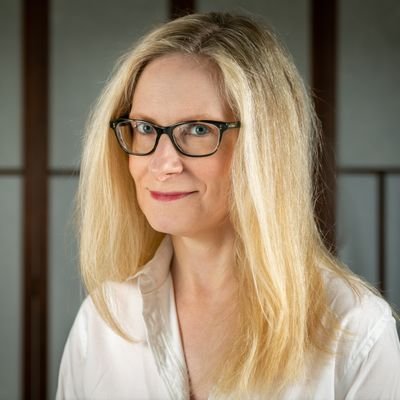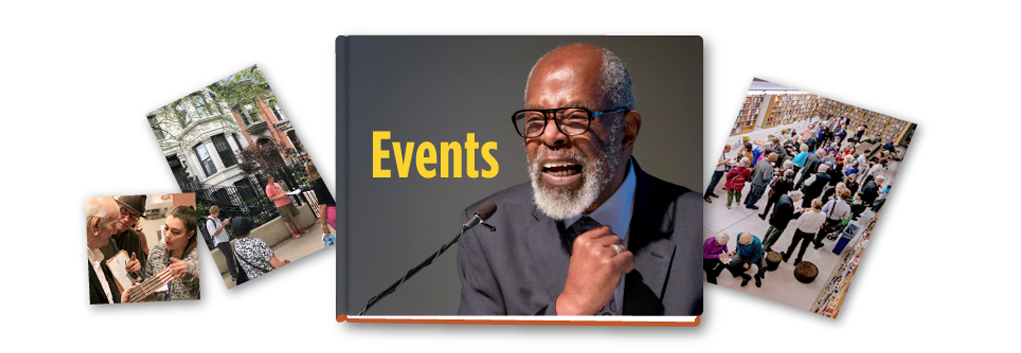The Great Michelle Moore: An Interview
Wednesday, February 21, 2024
In the course of researching and writing Chicago and the Making of American Modernism: Cather, Hemingway, Faulkner, and Fitzgerald in Conflict,  Michelle Moore closely read important Midwestern authors, including F. Scott Fitzgerald. She conducted a disciplined, granular investigation into every imaginable source material that informed the literature. She spent countless hours thinking about the stories and their authors, considering, from every angle, their ideas. Through her rigorous studies and writing, Michelle managed to contextualize these important works, and make connections between the authors and their influences. Chicago held critical sway on Fitzgerald and many others, like Willa Cather and Ernest Hemingway.
Michelle Moore closely read important Midwestern authors, including F. Scott Fitzgerald. She conducted a disciplined, granular investigation into every imaginable source material that informed the literature. She spent countless hours thinking about the stories and their authors, considering, from every angle, their ideas. Through her rigorous studies and writing, Michelle managed to contextualize these important works, and make connections between the authors and their influences. Chicago held critical sway on Fitzgerald and many others, like Willa Cather and Ernest Hemingway.
Michelle delights in knowledge. Literature is ingrained in her life the way eating breakfast is for others. She gets giddy over small discoveries and gushes over extraordinary work. Unlike some academics who seem to sacrifice their regard for primary text in favor of theoretical study, Michelle derives immense pleasure from the work itself.
Chicago literature factors into every Chicago Literary Hall of Fame program, even a fundraiser like The Great Gimlet. While we acknowledge that cocktails and jazz and delicious appetizers are the draw, we won’t lose site of the evening’s connection to Chicago’s great literary heritage. Michelle, who will give a short talk Saturday night about Fitzgerald, The Great Gatsby, and Chicago, will make sure of that.
DGE: Tell me about your upbringing. Where were you raised?
MM: I grew up in New Jersey, the central part, that is a combination of cow pastures, strip malls, and country roads.
DGE: I know you’re a lifelong reader and learner. What were you like as a kid?
MM: I was a huge reader, most likely because both of my parents were. There were newspapers everywhere, the local one came every day, and The New York Times every weekend. The ottomans had black smudges that never seemed to come completely clean. And all the usual magazines everywhere: Time, my mother’s nursing journals, National Geographic, Better Homes and Gardens. Every week we went to the county library and I’d come home with a giant stack of books that I’d read and replace each week. My mother always thought that children should read whatever they want without interference from adults saying what they should read or think. All that mattered was that they wanted to read.
DGE: As your reading habits started to take shape, what did you discover interested you most? Why do you think that was?
MM: Horror. Mysteries. Judy Blume. The Phantom Tollbooth. Harriet the Spy. Anything with a young, smart protagonist, who was ideally a girl, and probably written by a woman.
DGE: You’ve become one of our experts on Modernism, especially as it relates to Chicago literature. First, what drew you to Modernism?
MM: The idea of Modernism itself is a such a large, all-encompassing thing. There’s the modernism that is a response to a new and technologically driven world. There’s the Modernism of devastation and apocalypse. The Modernisms of new aesthetics and language to figure out what we can even make anymore. There’s a modernism of voices that weren’t heard before and those who believe they are being drowned out. It’s a huge, ever-shifting, and endlessly fascinating field that allows for the kind of interdisciplinary work I enjoy doing the most.
DGE: Second, what is the attraction to Chicago literature and/or writers?
MM: When I moved to Chicago twenty years ago, I couldn’t believe all these things had happened here that were so important not just regionally, but internationally. Chicago literature and writers were simply not considered as such. It was either “American Literature” or “New York.” There was so much more to consider about Chicago’s contribution to Modernism.
DGE: At the Chicago Literary Hall of Fame, we’re constantly debating the definition of “Chicago author,” as well as “Chicago book.” It’s not always clear where to draw lines. There’s no doubt, though, that Chicago is a force in literature and has been for a long time. What is your assessment of Chicago’s place in literary history and its standing today?
MM: It’s been largely overlooked by those outside of Chicago, despite Chicago’s presence as one of the great American cities internationally. Chicago literature was the original American literature.
DGE: I’m in awe sheer amount of work you put into researching Chicago and the Making of American Modernism: Cather, Hemingway, Faulkner, and Fitzgerald in Conflict. Tell us a bit about what went into your research, and the amount of time it took to get through so much material.
MM: I visited seven University and Research Library Archives over nine years. You go through lists of materials, asking them to pull boxes, sifting through contents, and requesting more boxes. It takes an unbelievable amount of time and most of the time, you don’t even know exactly what you’re looking for. There’s a lot of hope and faith that goes into archival research—that the story will appear if you just keep looking. You have to read cursive written by writers whose arm hurts that day and spend time trying to decipher entire lines curling around letters. You also have to make sense of manuscripts amended in pencil and booklists recovered from writer’s own libraries.
DGE: Research like this is a bit like detective work, yes? What were some of the clues or discoveries you made that gave you tremendous satisfaction, or led to heightened understanding?
MM: The Ginevra King letters to Fitzgerald that no one talks about or republishes. Ernest Hemingway’s graduation present at the JFK library. The Little Room records that tell a whole story. Harriet Monroe’s saved papers.
DGE: What did you learn about F. Scott Fitzgerald and his Chicago connections that was no generally known?
MM: You’ll have to attend the Great Gimlet cocktail party to find out!
Donald G. Evans is the author of a novel and story collection, as well as the editor of two anthologies of Chicago literature, most recently Wherever I’m At: An Anthology of Chicago Poetry. He is the Founding Executive Director of the Chicago Literary Hall of Fame, which will host its fourth annual fundraising cocktail party on Saturday, Feb. 4 at Colvin House (5940 N. Sheridan Road, Chicago), starting at seven p.m. The theme of this year’s party is The Great Gimlet, and scholar Michelle Moore will enlighten us with details about the relationship between Chicago and The Great Gatsby. Mixologist Ryan Prindle will make signature Chicago literary cocktails, including a French 75, a Gimlet, and a Sazerac. Registration is now open. We’ll close registration as soon as we reach our capacity, so don’t delay.








